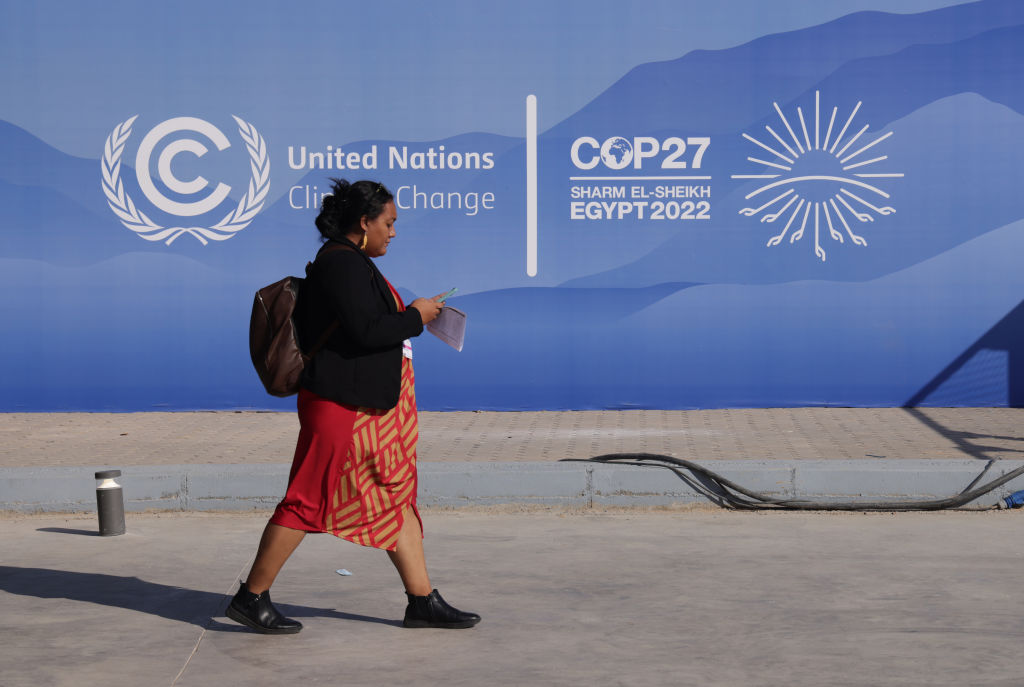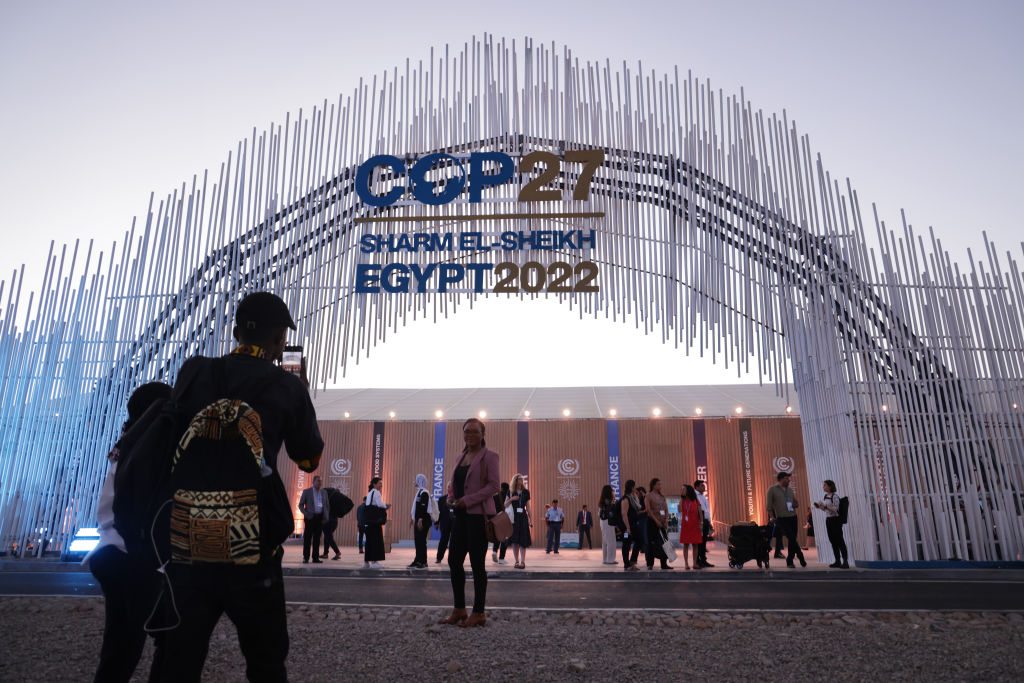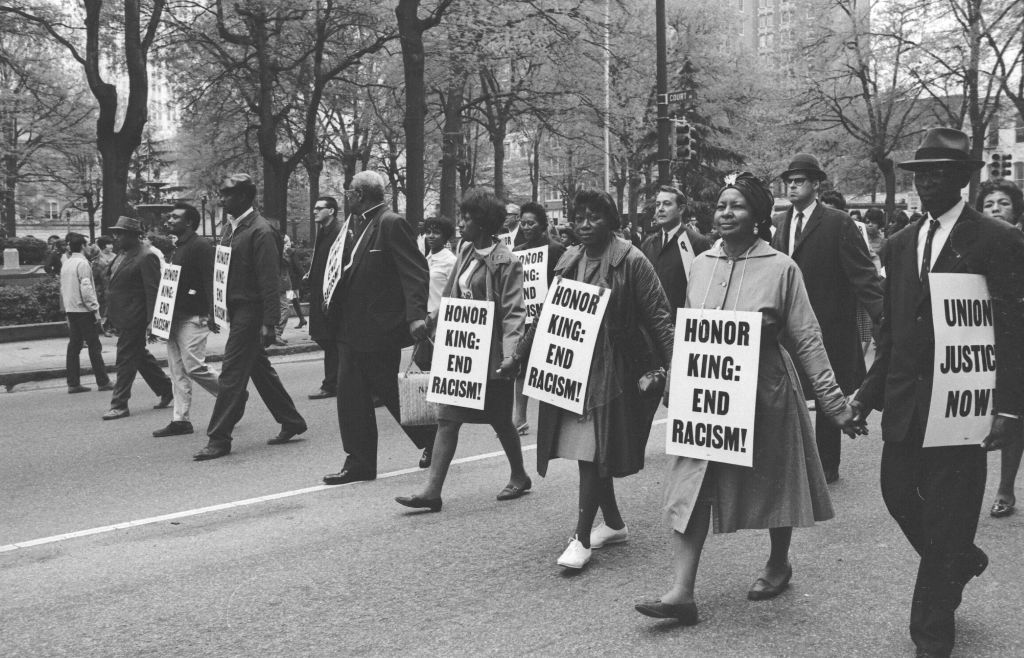Climate Crisis: Community Grounds Me, Faith Calls Me To Action
Op-Ed: When It Comes To The Climate Crisis, My Community Grounds Me; My Faith Calls Me To Action

Source: Sean Gallup / Getty
While I am attending the 2022 United Nations Climate Change Conference (COP27) in Egypt, marginalized communities are with me in spirit and thought. I am holding our struggles and the struggles of those we need to stand in solidarity with. As a young Latina from El Paso, Texas, I understand that the climate crisis has a disproportionate impact on people of color and it affects the physical and political landscape of our borderlands. I am clear that communities of color are least responsible for the climate crisis but suffer disproportionately because of it.
As a woman, I understand that the climate crisis has an outsized impact on women and children. Women and girls are more likely to suffer gender-based violence in the wake of weather emergencies. But women and children are also more likely to be displaced following major weather events. This should concern us all.
To be clear, the climate crisis’ impact on women and children is pronounced, and it is unrelenting. Women are more likely to be heads of households in the U.S., and women feel every weather event that destroys communities. While attending the climate convening at COP27, I am keenly aware that this is a moment in which the people most impacted by weather emergencies – people of color, persons living in poverty, and women and children – must be included as solutions are considered and discussed. It is critical that the voices of frontline communities are uplifted in the broader debate around climate and environmental justice.
But this issue concerns me for another reason. The climate crisis is an issue of faith as people of faith are called to care for creation. Christians are called to be good stewards of creation, human and non-human. We have a responsibility to steward creation as an act of love, not control. We have a responsibility to stand in solidarity with those that have been marginalized, to fight for Indigenous people’s rights and sovereignty, to advocate for gender justice and gender-informed solutions, and to lift the voices of those disproportionally affected by the climate crisis.

Attendees photograph one another outside the main entrance on the first day of the UNFCCC COP 27 climate conference on November 6, 2022, in Sharm El Sheikh, Egypt. | Source: Sean Gallup / Getty
What we must all appreciate is that all of creation is suffering from human-caused climate change. The window for addressing it is rapidly closing, endangering those least responsible and those already in vulnerable situations. My Christian faith compels me to heed the biblical command and serve people as well as steward the planet. Therefore, fighting for climate justice is advancing God’s work.
At United Women in Faith, we believe this so deeply that our Just Energy 4 All campaign mobilizes members and communities to take action to support 100% clean, renewable energy and a just energy transition, which prioritizes investments, opportunities and participation from frontline communities in decision-making processes.
We know that communities across the country are suffering. And suffering outlasts a news cycle. While no longer in the headlines, our neighbors and friends in Mississippi remain in dire straits following a water crisis there. When I visited the Bethlehem Center in Jackson, Mississippi in October, staff told me that they had been boiling water before drinking it for the past four to five years. We took water to them, knowing that we are responsible for so much more.
In Florida, seniors and people of color have been hard hit by a climate crisis that recently ushered in one of the deadliest hurricanes in decades. The loss and damage, not only of infrastructure but of people’s lives and lifestyles, are immeasurable. It will take years to recover, and some people may never recover. This is clearly a period of much suffering and fear, but we must remain faithful in organizing to tackle the climate crisis and mobilizing not only individual actions but collective efforts to ensure systemic change.
I know that not all can travel to Egypt for COP27. But we can all have a presence by tuning in virtually since the urgency of the climate crisis demands unprecedented change and action. We must do everything in our power to care for creation and bring justice and reparations to frontline communities. It starts with knowing why we do this work and how it impacts all whom we hold dear. Our push for systemic change and to make our governments and institutions responsive to our pleas must never cease.
IIka Vega is the economic and environmental justice lead for United Women in Faith.
SEE ALSO:
OP-ED: This Hurricane Season, Disaster Recovery Must Be Equitable And Just
Understanding Environmental Racism And Its Effect On Black Americans
















